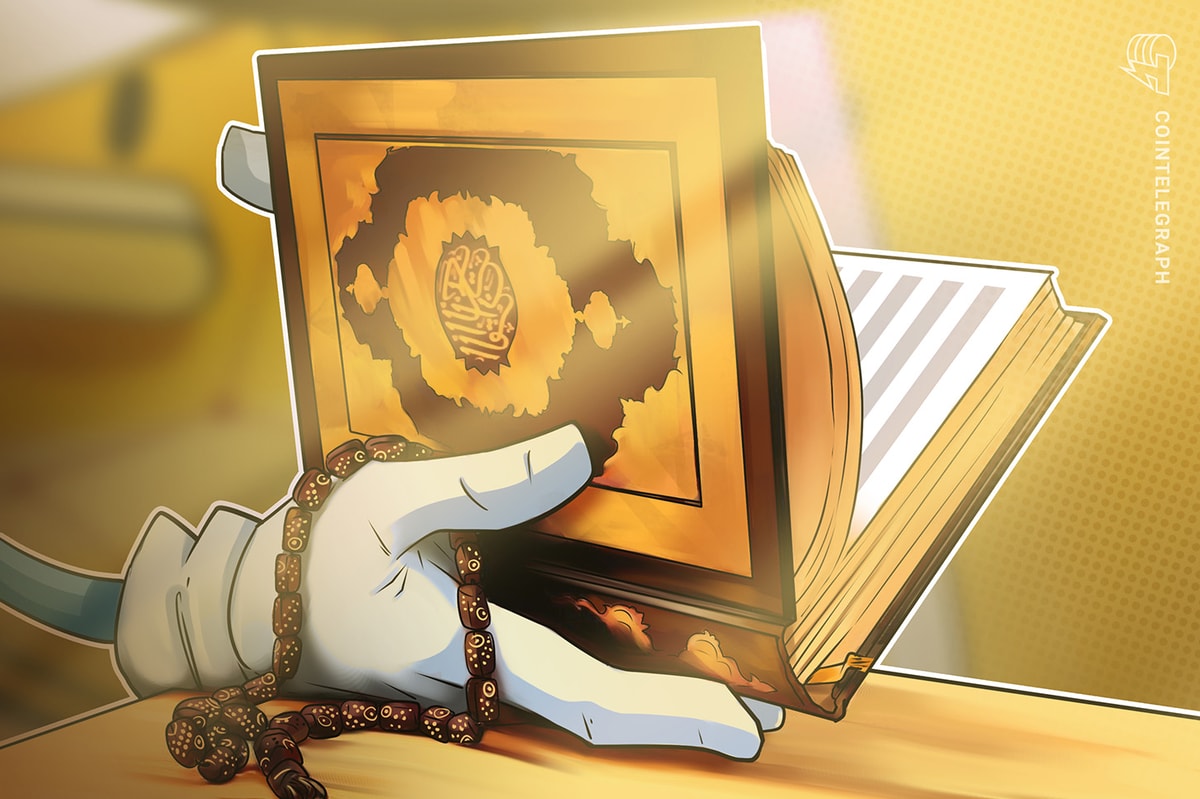A token’s value-accrual mechanisms affect whether that digital asset is compliant with Islamic Sharia Law, Mohemed AlKaff AlHashmi said.
News
Blockchain systems are the best way to ensure compliance with Sharia Law — the legal code in the Islamic religion that includes strict provisions for finance — due to their high transparency, traceability, and community governance structures, Web3 executive Mohemed AlKaff AlHashmi told Cointelegraph in an interview.
AlHashmi, the co-founder of Haqq Network — a layer-1 EVM-compatible Sharia-compliant blockchain — explained that financial activities like lending money at guaranteed interest rates, usury, and gambling are “haram” or forbidden in Islam.
According to the executive, the best way to ensure income or funds are only derived from “halal” or lawful sources is to use blockchain to verify transactions. The Haqq co-founder told Cointelegraph:
“If you look at the blockchain, it’s the most compatible technology with the Sharia’s ethics and values. When we talk about transparency, community governance, and traceability, the best tool to serve it is the blockchain.”
The global Muslim population is currently around 2 billion, with many Muslims lacking adequate financial solutions for halal donations — also known as zakat — equity-based home financing, and Sharia-compliant investment strategies.
The Fatwa or religious decree from Islamic Sharia scholars certifying Haqq Chain and its IslamicCoin token as halal Islamic financial products. Source Haqq
Related: Crypto trends shaping the Middle East’s blockchain future
Sharia-complaint crypto market growing
Verifying that income sources and investments are Sharia-compliant has been historically difficult due to technological limitations, co-mingling of funds by institutions, and the opacity of legacy financial systems.
AlHashmi said that the Sharia finance industry is valued at around $4 trillion and could double in the next 5 years.
A September 2024 report from Chainalysis found that the Middle East and North Africa regions — primarily comprised of Muslim, Arabic-speaking countries — accounted for 7.5% of cryptocurrency transaction volume globally between July 2023 and June 2024.
The Australian-based decentralized finance platform Marhaba Network was formed in 2020 with a focus on providing Islamic financial services.
In 2022, the firm said there was a strong demand for halal-approved crypto products, noting that its noncustodial Sahal Wallet garnered over 40,000 users at the time.
Crypto exchange Bybit announced the rollout of the Crypto Islamic account in September 2024 — giving users access to Sharia-compliant tokens, trading pairs, and trading bots.
The exchange also said the product was developed in consultation with Zico Shariah — a Malaysia-based company specializing in Sharia Law.
Magazine: Saudi Arabia’s Riyadh may be crypto’s sleeping giant: Crypto City Guide
This article first appeared at Cointelegraph.com News

